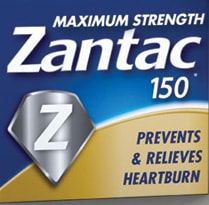
Last week, Novartis’ generics unit Sandoz halted the distribution of its version of ranitidine drug Zantac, as concerns that the drug contains a potentially cancer-causing impurity mounted.
Since then, Sandoz announced that it is voluntarily recalling its generic version of the heartburn medication in the US, which is available over-the-counter and as a prescription medicine. This was prompted by findings from the FDA that confirmed the drug was contaminated with N-Nitrosodimethylamine (NDMA).
The impurity, NDMA, is a probable human carcinogen – a substance which is known to potentially cause cancer.
In response to the voluntary recall from Sandoz, the FDA said that while it investigates “the root cause and risk, consumers and patients can continue to take ranitidine that has not been recalled”.
However, it did say that those those taking prescription ranitidine who want to discontinue use should consult a healthcare professional about other potential treatments. It also advised “consumers taking OTC ranitidine could consider using other OTC products for their condition”.
Now GlaxoSmithKline, the original branded manufacturer of Zantac, has stopped global distribution of the medicine, and will recall the drug in India and Hong Kong. GSK’s drug is made with an active ingredient from two India-based suppliers – Dr. Reddy’s Laboratories and Saraca Laboratories.
A spokeswoman for GSK, Kristen Neese, reportedly said in an email that Dr. Reddy’s has an FDA-approval to sell its own versions of prescription and OTC generic Zantac in the US. The drug-maker has now also halted the global distribution of the drug.
Canadian drug-maker Apotex has also joined the ranks of pharma companies who have decided to recall its versions of ranitidine, as the carcinogen contamination issue becomes increasingly worrisome.
The FDA and other global health regulators are continuing to test different ranitidine medications for the impurity, with more recalls likely as the investigations unfold. Canadian, German and Italian drug regulators have also begun recalls, among others.

Ned Sharpless, acting FDA commissioner
Acting FDA commissioner Ned Sharpless (pictured above) said that “we will continue to investigate and work to ensure these types of impurities do not exceed acceptable limits, so that patients can continue taking the medicines they need without concern.”
The European Medicines Agency has also begun a review of carcinogen contamination of ranitidine medicines, and will be evaluating the risks of the drug with its own tests.
It has also asked its Committee for Medicinal Products for Human Use to provide guidance for avoiding the presence of NDMA in human medicines, which will be directed at marketing authorisation holders.




